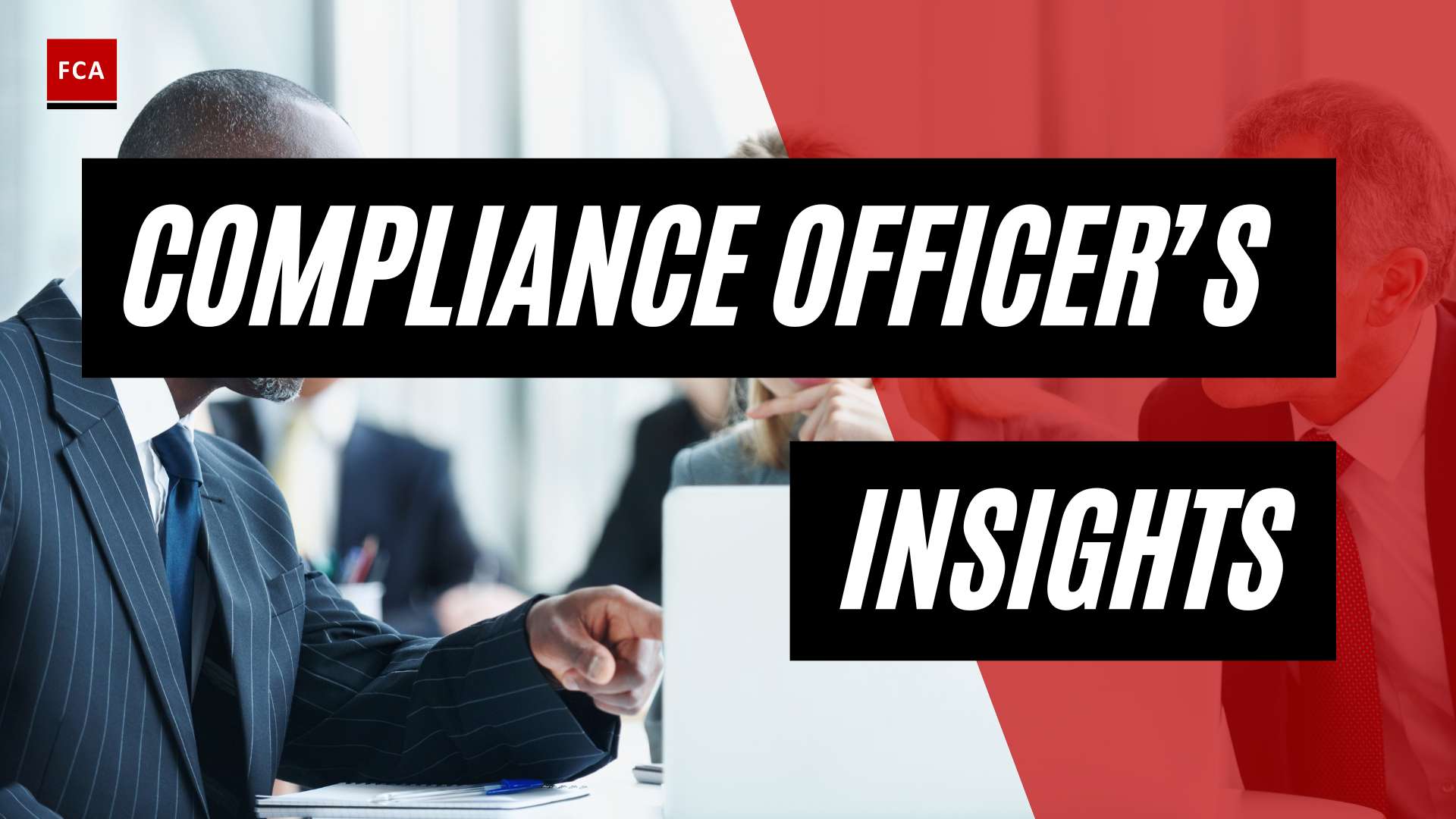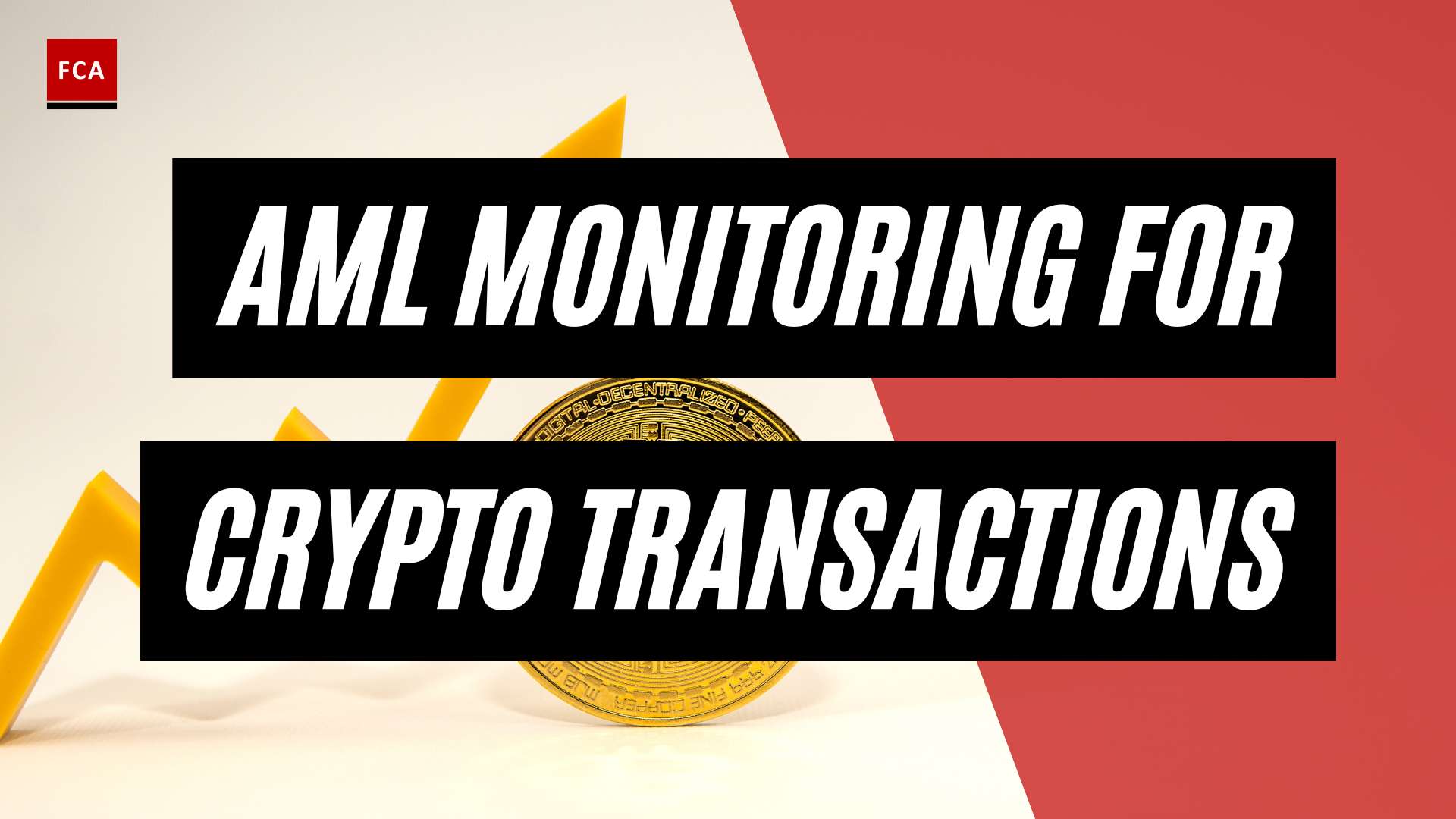Comenzar una carrera en AML
Para embarcarse en una carrera en Prevención de Lavado de Dinero (AML), es esencial comprender el papel de un Especialista en Prevención de Lavado de Dinero y las habilidades y calificaciones requeridas para las carreras de AML.
Papel de un especialista en prevención de blanqueo de capitales
El papel de un especialista en prevención de blanqueo de capitales es crucial en la lucha contra los delitos financieros, como el blanqueo de capitales, el fraude fiscal, la corrupción y el comercio ilícito. Estos especialistas desempeñan un papel vital para garantizar que las empresas mantengan la integridad financiera y cumplan con las regulaciones para mitigar los posibles riesgos de lavado de dinero. Son responsables de investigar y monitorear las actividades financieras dentro de la empresa para garantizar que todas las transacciones monetarias sean legítimas y cumplan con la ley, lo que reduce el riesgo de acusaciones de lavado de dinero (Manatal).
Lucha contra el blanqueo de capitales Los especialistas son profesionales centrados en los detalles y con mentalidad analítica. Poseen un profundo conocimiento de las leyes internacionales, la orientación y las mejores prácticas en técnicas contra el lavado de dinero. Su experiencia radica en la investigación y el seguimiento de las actividades financieras, la garantía del cumplimiento y la defensa de la integridad financiera de la empresa. Estos especialistas trabajan en estrecha colaboración con diversas partes interesadas, incluidos los equipos internos, los organismos encargados de hacer cumplir la ley y los organismos reguladores, para prevenir y detectar delitos financieros.
Habilidades y calificaciones para carreras de AML
Para tener éxito en una carrera de AML, las personas deben poseer habilidades y calificaciones específicas que sean esenciales para el puesto. Algunas de estas habilidades incluyen:
- Habilidades analíticas: Los profesionales de AML deben tener sólidas habilidades analíticas para analizar datos financieros complejos, identificar patrones y detectar actividades sospechosas. Deben ser capaces de evaluar los riesgos de manera eficaz y tomar decisiones informadas basadas en sus análisis.
- Atención al detalle: La atención al detalle es crucial en las carreras de AML. Los especialistas en lucha contra el blanqueo de capitales deben revisar meticulosamente las transacciones, los documentos y los registros financieros para identificar cualquier irregularidad o posible actividad de blanqueo de capitales.
- Conocimiento de las leyes y regulaciones de AML: Una sólida comprensión de las leyes y regulaciones de AML es esencial para los profesionales de AML. They should stay updated with the latest regulatory requirements and guidance to ensure compliance and mitigate money laundering risks.
- Communication Skills: Effective communication is vital in the field of AML. AML professionals need to communicate complex information and findings to various stakeholders, both internally and externally. They should be able to explain AML concepts, procedures, and requirements clearly and concisely.
- Problem-Solving Abilities: AML professionals should possess strong problem-solving skills to address issues related to money laundering and financial crimes. They should be able to think critically and develop effective strategies to mitigate risks and ensure compliance.
- Ethical Conduct: A high level of integrity and ethical conduct is crucial in AML careers. AML professionals handle sensitive financial information and must adhere to strict confidentiality and ethical standards.
In terms of qualifications, many AML job postings may require candidates to have a background in compliance, risk management, finance, or a related field. Some positions may also require specific certifications, such as Certified Anti-Money Laundering Professional (CAMP) certification.
To enhance their qualifications and marketability in the AML field, individuals can consider gaining additional knowledge in areas such as forensic accounting, statistical data mining, and risk management. Obtaining relevant certifications, like the CAMP certification, can also significantly boost career prospects and demonstrate a commitment to ongoing education in financial crime prevention.
By acquiring the necessary skills and qualifications, individuals can position themselves for a successful career in AML. It’s important to stay updated with industry trends, continually develop expertise, and leverage opportunities for professional growth and advancement in the ever-evolving field of Anti-Money Laundering.
AML Career Opportunities
For individuals interested in pursuing a career in Anti-Money Laundering (AML), there are various job roles and opportunities available in this field. AML professionals play a crucial role in detecting and preventing money laundering, fraud, and other financial crimes. Let’s explore some of the key AML career opportunities.
AML Analysts and Investigators
AML analysts and investigators are at the forefront of combating money laundering and financial crimes. These professionals are responsible for investigating and monitoring suspicious financial activities to ensure their company complies with regulations (Sanction Scanner). AML analysts offer firms comprehensive AML compliance programs, manage the complexity of AML compliance, and protect their companies from potential AML penalties.
These professionals analyze vast amounts of data, conduct research, and utilize advanced tools and technologies to identify patterns and potential risks associated with money laundering. By effectively monitoring transactions, they help mitigate the risk of financial crimes and ensure compliance with relevant regulations.
AML Compliance Officers
Compliance specialist positions are also in high demand within the AML sector. AML compliance officers are responsible for ensuring that financial institutions adhere to all relevant laws and regulations regarding money laundering (ZipRecruiter). They develop and implement robust compliance programs, perform risk assessments, and conduct internal audits to identify and address any potential vulnerabilities.
AML compliance officers work closely with other departments within financial institutions to ensure that appropriate policies and procedures are in place, training programs are conducted, and any suspicious activities are reported to the relevant authorities. Their role is vital in maintaining the integrity of the financial system and safeguarding against illicit financial activities.
Other AML Job Roles
In addition to AML analysts and compliance officers, there are various other job roles within the AML field. Some of these roles include AML investigators, risk analysts, compliance managers, and data analysts (ZipRecruiter). Each role focuses on different aspects of AML, such as investigating suspicious activities, assessing and managing risks, ensuring compliance, and analyzing data to identify potential patterns and trends.
These diverse career opportunities provide individuals with the flexibility to choose a path that aligns with their interests and skills within the broader AML field.
By pursuing a career in AML, professionals have the opportunity to make a significant impact in combating financial crimes and protecting the integrity of the financial system. As the demand for AML professionals continues to grow, it is essential to stay updated on the latest industry trends and advancements to enhance career prospects in this field. AML certifications, such as the CAMP Certification, can also enhance one’s qualifications and credibility in the AML job market.
The Demand for AML Professionals
As the prevalence of financial crimes continues to grow worldwide, there is an increasing demand for skilled professionals in the field of Anti-Money Laundering (AML). These individuals play a crucial role in combating money laundering and related activities. In this section, we will explore the growth in the AML industry and provide insights into the salary and job market outlook for AML professionals.
Growth in the AML Industry
The demand for AML professionals has been on the rise, driven by the need to counter the ever-evolving techniques used by money launderers. According to ZipRecruiter, the demand for AML compliance officers increased by 55% in 2020 compared to the previous year. This significant growth indicates the expanding career opportunities in the field of AML.
One of the most sought-after roles in the AML industry is that of an AML analyst. Over the past decade, job postings for AML analysts have seen a staggering 430% increase, as reported by ZipRecruiter. This trend highlights the promising career path available for individuals interested in anti-money laundering-related roles.
Salary and Job Market Outlook
The job market for AML professionals is robust, with competitive salaries and ample opportunities for career growth. The salaries in the AML industry can vary depending on factors such as job title, experience, and location.
According to ZipRecruiter, AML compliance officers are among the most popular job types in the AML field. While specific salary figures may vary, the average salary for AML compliance officers ranges from $60,000 to $110,000 per year.
For AML analysts, the salaries can also vary based on experience and location. According to ZipRecruiter, the average annual salary for AML analysts is around $60,000.
It’s important to note that salaries may differ based on industry, company size, and individual qualifications. AML professionals with advanced certifications and specialized skills may have higher earning potential. To learn more about the certifications that can enhance your AML career prospects, refer to our section on AML Certifications and Their Benefits.
Overall, the job market for AML professionals is dynamic, offering promising career prospects and opportunities for advancement. As financial crimes continue to evolve, the demand for skilled AML professionals is expected to grow, making it an exciting and rewarding field to pursue.
In the next section, we will delve into the importance of AML certifications and how they can contribute to your AML career growth.
AML Certifications and Their Benefits
To excel in the field of Anti-Money Laundering (AML), professionals can benefit from obtaining relevant certifications. AML certifications are considered essential to equip individuals with top-notch skills to combat financial crimes such as tax fraud, corruption, money laundering, and illicit trade. These certifications increase the demand for Anti-Money Laundering specialists in the job market (Dumpsgate).
Importance of AML Certification
Obtaining an AML certification can open up various career opportunities in the financial sector. Certified individuals are well-positioned for roles such as AML analysts, compliance officers, fraud investigators, risk managers, and other related positions. These roles are crucial for organizations to effectively combat money laundering, terrorist financing, and other financial crimes (Indeed).
Additionally, earning an AML certification demonstrates a commitment to professional growth and ongoing education in the field of financial crime prevention. It serves as a differentiator in the competitive job market, setting certified individuals apart from other candidates. AML certification showcases their dedication to upholding ethical standards and regulatory requirements in the financial industry, making them attractive to employers.
Enhancing AML Career Prospects
To excel in the field of Anti-Money Laundering (AML), professionals can take specific steps to enhance their career prospects. This section explores two essential factors for advancing in the AML industry: industry knowledge and expertise, and the utilization of advanced technologies in AML.
Industry Knowledge and Expertise
Building a strong foundation of industry knowledge and expertise is crucial for success in the AML field. AML professionals should continuously stay updated with the latest regulations, emerging trends, and best practices. This can be achieved through attending industry conferences, participating in webinars, joining professional associations, and engaging in ongoing professional development opportunities.
Gaining specialized knowledge in areas such as forensic accounting, statistical data mining, and risk management can also enhance career prospects in AML. These additional skills can provide a competitive advantage and make professionals more valuable assets to their organizations. By staying informed and continuously expanding their knowledge base, AML professionals can position themselves as experts in their field, increasing their chances for career growth and advancement.
Advanced Technologies in AML
As the financial landscape evolves, so do the methods and techniques employed by money launderers and financial criminals. To counter these evolving threats, AML professionals must leverage advanced technologies to enhance their effectiveness in detecting and preventing financial crimes.
Financial organizations should invest in technologies like AI-driven software to support AML analysts in detecting and investigating suspicious activities more efficiently and reliably (Sanction Scanner). These technologies can streamline processes, automate routine tasks, and provide valuable insights through data analysis. By utilizing AML software programs like Sanction Scanner’s AML Compliance solutions, organizations can ensure easy compliance with AML regulations, reducing the risk of financial crimes (Sanction Scanner).
By embracing advanced technologies, AML professionals can improve their efficiency, accuracy, and productivity. These technologies can assist in handling AML/CFT requirements effectively across various sectors, sizes, and geographic locations, making compliance programs easier and more effective (Sanction Scanner). Staying up to date with technological advancements in the AML field and acquiring the necessary skills to utilize them can significantly enhance career prospects and demonstrate an individual’s commitment to staying ahead in the industry.
To enhance AML career prospects, professionals should focus on expanding their industry knowledge and expertise while embracing advanced technologies. By combining these two factors, individuals can position themselves as valuable assets to their organizations and increase their chances of career growth and success in the AML industry.
AML Job Market and Industries
As the fight against financial crimes intensifies, the demand for skilled professionals in the Anti-Money Laundering (AML) field continues to grow. In this section, we will explore the job market trends in AML and the opportunities available in different sectors.
Job Market Trends in AML
The job market for AML professionals is robust, with numerous opportunities available worldwide. In Toronto, Canada alone, there are currently over 3,000 open AML positions as of October 2021, highlighting the high demand for individuals with AML expertise.
AML job vacancies are not limited to a particular industry or geographic region. The banking, financial services, consulting, investment management, and insurance sectors are among the key industries actively seeking AML professionals in Toronto and beyond (Indeed). This wide range of industries reflects the importance of AML compliance across various sectors where financial transactions take place.
To succeed in the AML job market, candidates should possess a strong understanding of AML laws and regulations, experience in conducting investigations, analyzing data, and effective communication skills with diverse stakeholders (Indeed). Continuous learning and staying updated with the latest developments in the AML field can also enhance career prospects.
AML Opportunities in Different Sectors
The diversity of AML job opportunities allows individuals to align their interests and expertise within the AML domain. The following sectors commonly offer AML career opportunities:
- Banking: Banks play a critical role in detecting and preventing money laundering. AML professionals in banks are responsible for conducting due diligence on customers, monitoring transactions, and implementing robust AML programs to ensure compliance with regulatory requirements.
- Finance: Financial institutions, including investment firms and asset management companies, require AML professionals to safeguard against money laundering risks. These professionals collaborate with internal teams to identify suspicious activities and implement effective AML controls.
- Insurance: Insurance companies also face the risk of being used as vehicles for money laundering. AML professionals in the insurance sector work to prevent fraudulent claims and detect money laundering activities by analyzing policy applications, claims, and other insurance-related transactions.
- Consulting Firms: AML consulting firms provide specialized services to organizations seeking guidance on AML compliance. AML professionals in consulting firms assist clients in developing and enhancing their AML programs, conducting risk assessments, and providing training to employees.
The prevalence of financial crimes worldwide creates an ongoing need for skilled AML professionals to combat money laundering and related activities. As regulatory frameworks continue to evolve, individuals with AML expertise will find ample opportunities to contribute to the fight against financial crimes.
To further enhance career prospects in the AML field, individuals may consider pursuing AML certifications such as the CAMP Certification, which is widely recognized and valued in the industry. Additionally, staying informed about the latest industry trends and advancements in technology can help professionals stay ahead in their AML careers.
In conclusion, the AML job market offers a range of opportunities across different industries, providing individuals with the chance to make a significant impact in the fight against money laundering. With the right qualifications, skills, and dedication to continuous learning, professionals can navigate a fulfilling career in AML.









